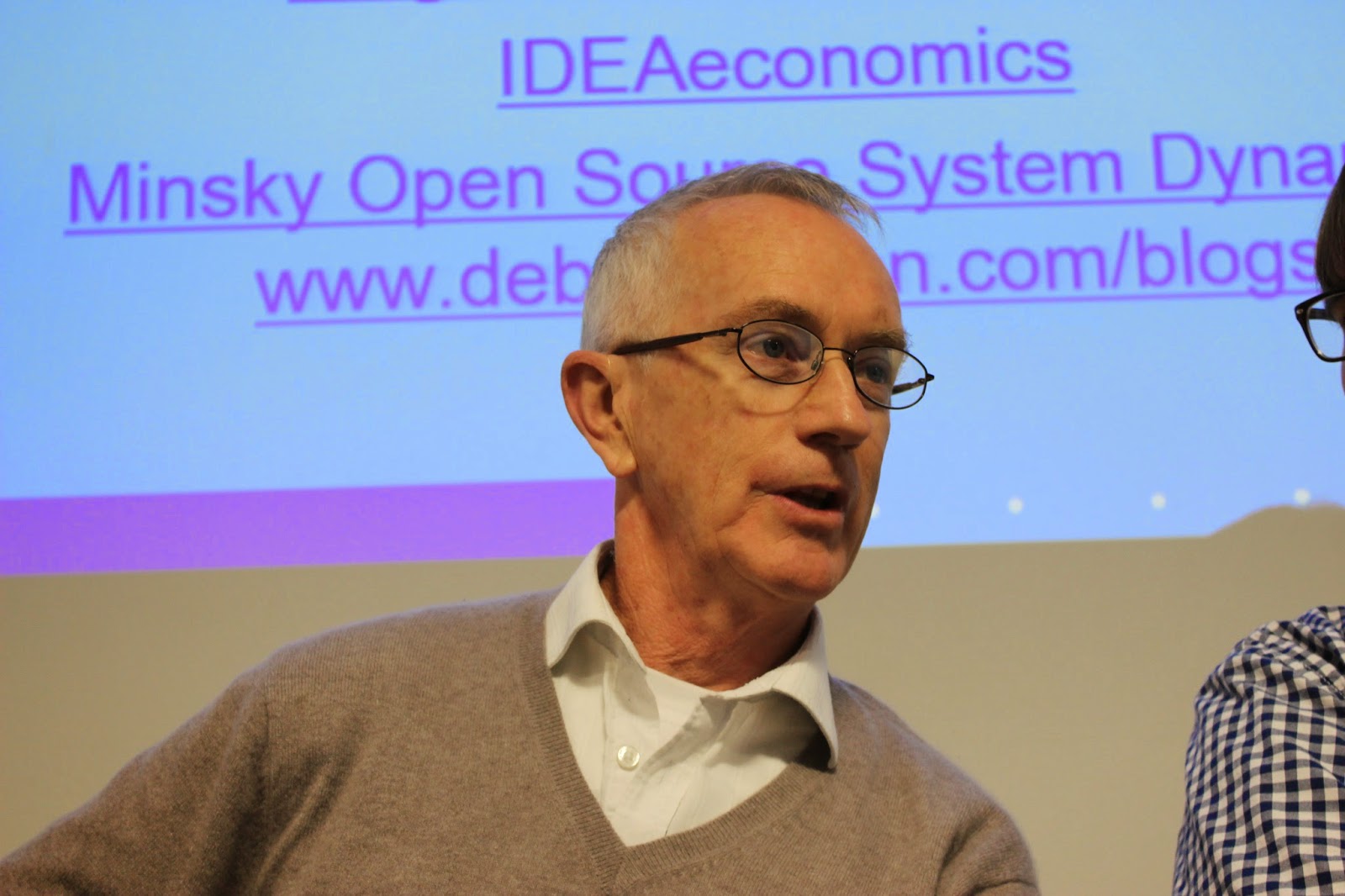Received from Sara Gorgoni, University of Greenwich, Department of International Business and Economics, Programme Leader
The 24th of November was an
important day for the economists at the University of Greenwich, when four
programmes in economics offered by the Department of International Business
and Economics - BSc (Hons) Economics, BSc (Hons) Economics with Banking,
BA (Hons) Business Economics and BA (Hons) Economics with Language - were
successfully reviewed. Every day all over the country undergraduate
programmes get reviewed and revalidated, so normally this is not something
worth making too much fuss about. But this time is different! Our revised
programmes are different. Why so, you may ask?
The revised programmes were
commended for “the enthusiasm and development of new material by the
teaching team, showing a flexible and responsive approach to the current environment,
as well as taking a leading role in the sector”. That is, they were praised
for leading changes in the way economics is taught. The last seven years
have not been easy for the global economy as well as the teaching of
economics. The recent financial crisis and the Great Recession have led
many economists, non-economists and students in economics to question the
state of the discipline, wondering to what extent it provides the necessary
tools to interpret the complex world we live in, signalling a deep
dissatisfaction with economists’ ability to provide solutions to real
world problems. Employers have recognised that the economics graduates
that the standard curriculum generates are not equipped with the skills that
the real world requires. Likewise, students themselves have recognised that the
tools and theories they learn don’t enable them to make sense of the world
they live in, let alone to address and solve real world problems. The need
for a pluralistic approach to the teaching of economics, the need to teach
real world economics that better helps to understand and act in the world
we live in, the urgency to integrate some of the burning issues of our time
such as ecological sustainability to the curriculum all emerged from the
debate as crucial aspects. We are grateful to Rethinking Economics,
International Student Initiative for Pluralism in Economics, and
Post-Crash Economics Societies in Manchester and elsewhere for stimulating
our debate.
The reason the revalidation of
the economics programmes at the University of Greenwich is special is that it
constitutes one of the first institutional responses to current pressures
from students, faculty, employers and policy makers to produce more
‘world-ready’ graduates. In redesigning our economics programmes we – the
economics programmes team - have decided to:
- Address socially relevant
economic questions in all core economic courses by adopting a historical
and pluralistic perspective right from the start and throughout the programme.
- Add two new compulsory
courses -Economic History in the first year and History of Economic Thought in
the second year, and an optional course Political Economy of International
Development and Finance in the third year.
- Integrate the concept of
environmental and social sustainability –– in the teaching of economics in all
courses, as well as provide specific courses such as Environmental Economics
and Environmental Regulation and Business Ethics and Corporate Social Responsibility.
- Eliminate from the
curriculum those topics that tend to be taught by default just because
they appear on standard economics textbooks rather than because they are recognised
as truly useful in understanding how economies really work.
In particular, the rationale
for the introduction of Economic History and History of Economic Thought
courses is that students should be made aware of what has happened in the sphere
of economics, more or less in the order that it happened. This will help
them place the economic ideas and theories they come across in all courses
into an historical context, to form their own opinion by reading the
original texts, e.g. by Smith, Ricardo, Marx, Schumpeter, and Keynes, and
hopefully develop an understanding of economics as the result of a dynamic
social process including controversy, conflict, and social change.
However, we do not isolate the
development of a pluralistic perspective to only a few courses, but rather
integrate it in all our courses by approaching real world problems from the
perspective of different theories, both old and contemporary, comparing,
contrasting, or at times synthesising them. This should help the students
to develop a critical perspective towards current economic theories and
evolving economic events, and develop an understanding about the
limitations of theories and models (for example, what happens out of
equilibrium), and think more widely about the historical, institutional
and political context of economic behaviour and policies. The work of a
diverse body of research active lecturers informs our teaching.
Our understanding of pluralism
does not only include different schools of thought and disciplines, but
also methodologies. Our new programmes encourage going beyond Quantitative
Methods. We encourage the use of case studies, qualitative research methods,
as well as a multitude of different quantitative methods including but not
limited to econometrics. E.g. we pride ourselves for having the biggest
research centre in Social Network Analysis (SNA) in Europe, and I, among
others, use the approach and methodology of SNA in teaching
economics.
The ability to think
critically also requires the ability to analyse empirical evidence, and this
is why we have restructured our Quantitative Methods courses to strengthen
students’ ability to identify, access and use relevant data sources to
analyse current economic problems and form an independent opinion in the
public debate, and to be critical about the way data is supplied and used.
Finally, we care about developing the ability of our students to
communicate economic ideas clearly and in a non-technical fashion to a
wide variety of audiences, because economics should not be a cryptic
language accessible only to an elite group of economists, but rather
belong to the society.
All in all we have tried to
contribute towards a better teaching, learning and use of economics, and we
hope to see more of this in the future, around the country and the world.








